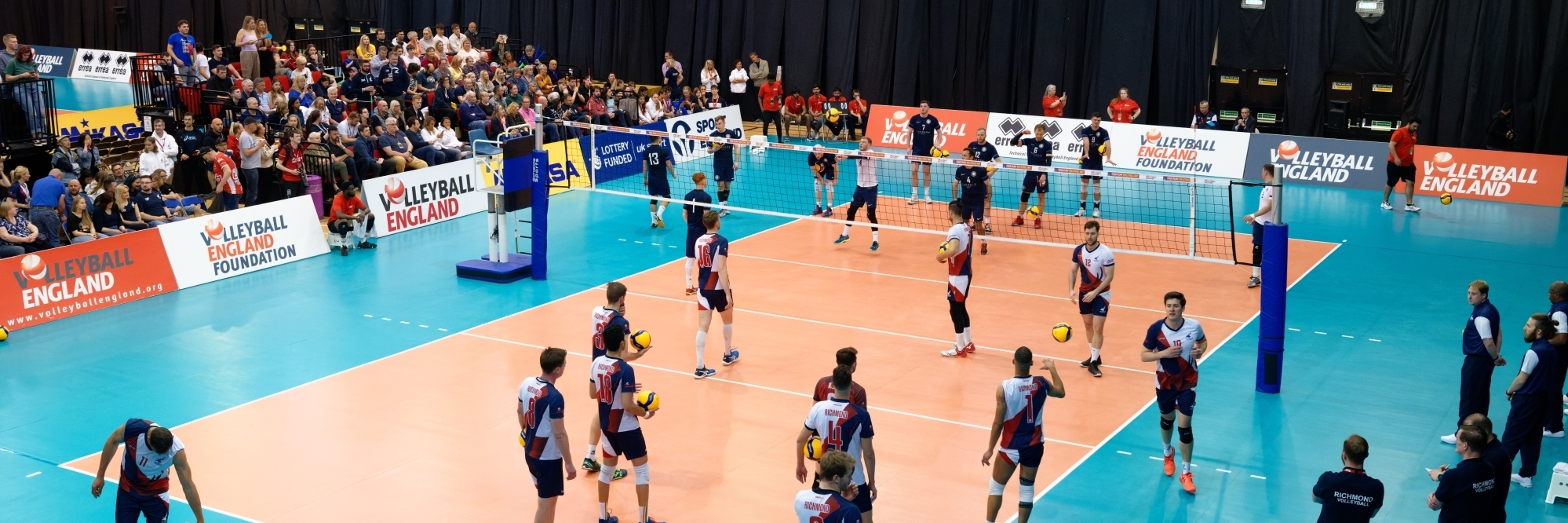
Transgender Participation
Following an extensive research and review process, we have created a policy for transgender participation in volleyball in England.
Developing this policy was a complex process involving multiple stakeholders and in-depth research and consultation. We feel the policy is appropriate for volleyball right now and will commit to ensuring it continues to be so with regular reviews.
Frequently asked questions
What is a gender-affected sport?
A gender-affected activity is a sport, game or other activity of a competitive nature in circumstances in which the physical strength, stamina or physique of average persons of one sex would put them at a disadvantage compared to average persons of the other sex as competitors in events involving the activity.
How should I welcome a transgender player to a session?
Inclusive venues, and coaches who take proactive steps that enable everyone to access volleyball, provide a positive experience and the opportunity to achieve their potential, and trans people are no exception to this. Please take on board these tips and be mindful that for many people (particularly trans people), they may have been on a considerable social and emotional journey even to reach your venue or session and we want to ensure that their first experience is a positive one.
We therefore recommend to:
- Welcome the player just as you would any other new attendee or member.
- Treat the player with dignity and respect.
- Respect the private and confidential nature of the players situation.
- Take your lead from the person attending your session, ask their name and use it.
- Encourage the player to feedback any inappropriate language or behaviour from other members or spectators so that it can be dealt with.
- Agree with them how and what information is to be shared with others if this is necessary; this may include a change of name and title, and this should be accommodated without prejudice or aggravation.
- Adopt a zero-tolerance stance to transphobic language or jokes, whether the trans person is present or not. Language that degrades trans people creates a hostile environment and must be stopped. Sometimes these behaviours appear trivial and are overlooked. They must not be, because if allowed to continue, they become the norm, and behaviour and language, not only towards trans people, but towards other minority groups is also likely to escalate.
Things to avoid:
- Please don’t make assumptions about the player, either in terms of their sexual orientation or their medical background, take your lead from the information they may, or may not, offer you.
- Don’t be uncomfortable or awkward in the language you use, the trans player should be referred to as the sex that they tell you are, i.e., use ‘he’ or ‘she’ as you would with anyone else.
What is the process for challenging a player’s sex during competition?
The challenge should only be made through a formal enquiry to Volleyball England and not at the game or the event. Volleyball England will examine the enquiry according to the Code of Conduct.
What happens if a player does not disclose their gender?
For participation or non-competitive volleyball, a player does not need to disclose their gender. For official competition, to enter the female category, players must list their sex at birth as female.
What happens if someone wants to change their gender or identify as a different gender during a competitive season?
A transgender woman can still play in the male category of competition. A transgender woman cannot play in the female category of competition. A transgender man can continue to play in female competition unless testosterone hormone treatment has commenced. A transgender man can play in male competition as there is no physical advantage that would make the competition unfair.
Can female players that do not identify as transgender play for a male team and compete in male volleyball competition?
As this policy has determined that there is no unfair advantage to female players competing in male competition, the answer is yes.




